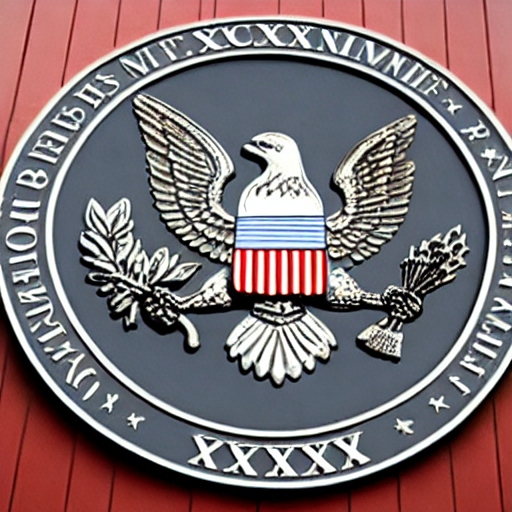The chairman of the Securities and Exchange Commission (SEC), Gary Gensler, is waging a ferocious campaign against the US digital asset market. The regulations regulating digital assets remain excessively ambiguous in spite of the industry’s repeated requests for the SEC to offer clarifying rulemaking and guidance. More than ever, it is obvious that Chair Gensler wants to outlaw cryptocurrency in the United States because to the latest SEC actions against influential businesses like Coinbase. The government cannot oversee the digital assets market properly with such blatant bias and a flagrant disregard for the fundamental principles of due process.
For this reason, Chair Gensler should step aside from any future decisions involving SEC enforcement of the American digital assets market.
The goal of the SEC is to stimulate capital formation while protecting investors and preserving fair and orderly markets. Some of the SEC’s divisions create rules and guidelines as part of the rulemaking authority given to the organization by Congress in order to carry out its purpose. The SEC has given up on its role as a regulation authority when it comes to digital assets, leaving investors and business owners without a clear means to respond to the fundamental question of how or not securities rules apply to their goods or services.
The SEC hasn’t been inactive just because there haven’t been any regulation efforts. On the other hand, the SEC has shifted into enforcement overdrive, focusing on the crypto business with wave after wave of punitive enforcement actions rather than thoughtful regulations that take into consideration the special nature of digital assets.
Before bringing an enforcement action, the SEC, unlike other federal agencies, uses a procedure known as the “Wells process,” which gives the subjects of such actions due process by giving them a chance to reply and be heard. A “Wells notice” outlining the alleged violation and giving the target the chance to offer information in their defense to the SEC’s enforcement division is given to the subject of the inquiry at the start of the process. Following this procedure, if the agency decides to pursue the matter, they give the information to the Commissioners, who then decide whether to do so.
In order to initiate an enforcement action in accordance with the standards of due process, the Commissioners must act impartially—and even try to avoid appearing to be biased. Commissioners make their decision on whether or not to launch an action only after carefully examining all sides of the dispute and without prejudging any facts or issues.
In order to cast a yes or no vote on whether to file an action, SEC Commissioners must perform a quasi-judicial function. The Wells process closely resembles a court case, with the staff serving as prosecutors and the Commissioners serving as impartial arbiters when they decide whether to move further.
If the matter of recusal were taken before a judge in a court of law, the judge would order a Commissioner to disqualify oneself or order the case to be dismissed if it appeared that the Commissioner had already made up his or her mind about the facts and law of a particular case. Disqualification is necessary when there is a “reasonable suspicion of unfairness,” according to the 6th Circuit in the case American Cyanamid Co. v. FTC.
The key factor in a Commissioner’s decision on whether to move forward with a specific enforcement case in the context of a digital assets-related action is assessing whether a certain digital asset is a security. Chair Gensler has already made a determination on the matter, notwithstanding the fact that it depends heavily on the individual facts and circumstances of a given transaction. Chair Gensler has been vocal about his position for more than a year: all digital assets, with the exception of bitcoin, are securities, period. Before delving into the facts and circumstances, his repeated and adamant claim gives the clear impression that he has already decided the key contention in a matter involving digital assets.
Chair Gensler repeatedly asserting that all digital assets other than bitcoin are securities in enforcement proceedings involving digital assets fosters the exact kind of unfairness that would cause a court to order recusal because Chair Gensler has already made up his mind about the facts and the law of a particular case before hearing it. Chair Gensler’s vote on whether to pursue an enforcement action is therefore biased because he refuses to consider the specifics of each case, undermining the Wells process and depriving enforcement targets of their right to due process.
There are substantial repercussions for the target of an SEC enforcement case that is publicly filed. Shareholders will eventually bear the brunt of the consequences, while profits could fall and litigation fees are expensive. Due process for those who are the subject of SEC enforcement actions is essential for this reason.
The Law requires Chair Gensler to recuse himself from any decisions regarding the commencement or continuation of an enforcement action based on the idea that a digital asset is a security in order to prevent tainting the process.








